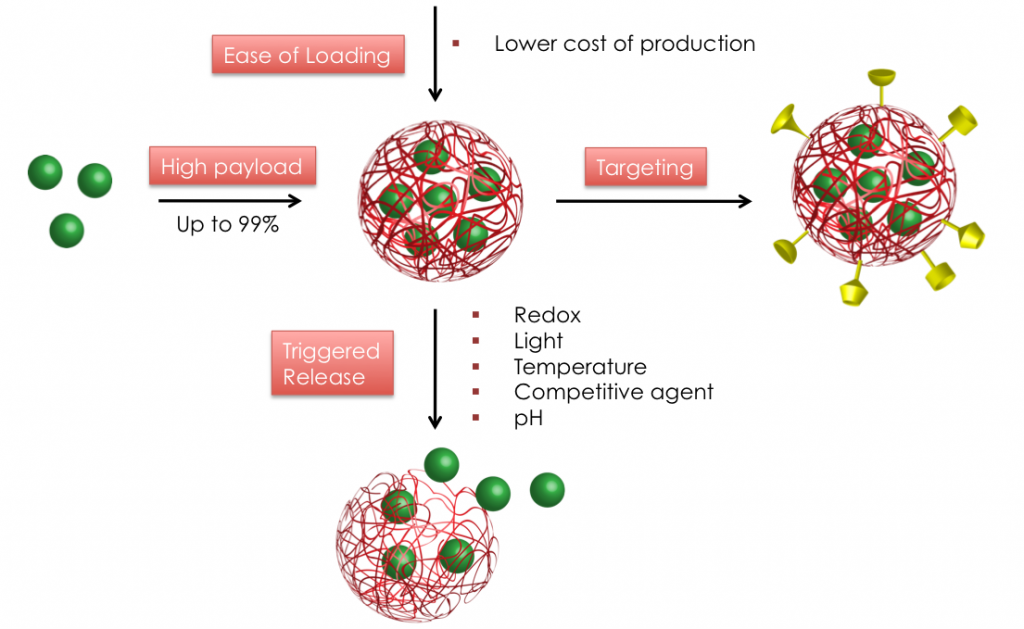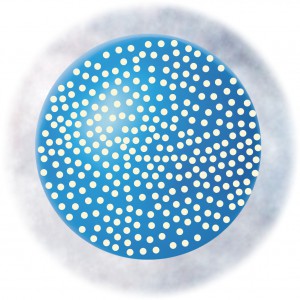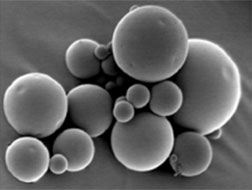Encapsulation refers to a wide range of technologies that encapsulate, protect and release active compounds when required. The combined global market is estimated to be worth $40bn across a range of industries, including consumer products (household goods, food, cosmetics), industrials (oil & gas, pulp & paper, textiles), agriculture and pharmaceuticals.
Typical examples include controlling the release of flavours in food, allowing drugs to be protected while they travel to the intended site of action, and controlling the release of fertilisers in agriculture.
While some of the largest companies in the world are key players in this market, there are also plenty of startups and SMEs developing innovative encapsulation technologies. We’ve picked out our Top 5 emerging innovators with breakthrough encapsulation technologies from the VentureRadar database.

Aqdot is a Cambridge University spin-off company developing intelligent encapsulation technology that enables valuable active products to be protected, delivered and chemically programmed to release where and when required. The platform technology has applications in a wide range of industries, including household products such as detergents, pharmaceuticals, oil and gas, agrochemicals, cosmetics, food, paint, fragrances and personal products. The company was founded in 2012.

Amphidex is a Danish company, founded in early 2010 by Aalborg University and NOVI Innovation, developing cyclodextrin technology. Cyclodextrins are natural sugar compounds consisting of 6-8 glucose units in a ring structure. Due to the composition of the glucose monomers a hydrophobic cavity is formed in which smaller, water insoluble molecules can be included. These can be used to encapsulate compounds in a vast variety of applications in areas as such as medicine, air fresheners, as well as air & water purification.

Bionanoplus is a drug delivery company that specialises in polymeric nanoencapsulation solutions. Bionanoplus says it has solved the scalability problem of traditional nanoparticle manufacturing methods, avoiding the use of volatile organic solvents, ensuring easy and cheap production at any scale that can be performed using standard equipment and techniques. Bionanoplus has developed several proprietary technology platforms to obtain nanoparticle-based systems without using volatile organic solvents, providing advantages such as increased bioavailability, controlled release, and enhanced solubility and stability. The Spanish company was founded in 2010.
Carlina Technologies is a French company founded in 2010, specialising in the development of nanomedicines utilizing innovative non-denaturing drug delivery technologies for therapeutic proteins, peptides and other types of drugs. The company develops controlled-release pharmaceutical versions of drugs capable of targeting them to their site of action. This results in increased efficacy and safety of treatments leading to improved patients’ compliance and quality of life.
 Slovenia-based MikroCaps provides encapsulation techniques that enable the encapsulation of various core materials with different polymer membranes, across a range of industries. Depending on the properties of the core material and required characteristics of the encapsulated materials, MikroCaps uses different encapsulation techniques such as interfacial polymerisation, in-situ polymerisation, coacervation, spray drying, spray chilling and fluid bed coating.
Slovenia-based MikroCaps provides encapsulation techniques that enable the encapsulation of various core materials with different polymer membranes, across a range of industries. Depending on the properties of the core material and required characteristics of the encapsulated materials, MikroCaps uses different encapsulation techniques such as interfacial polymerisation, in-situ polymerisation, coacervation, spray drying, spray chilling and fluid bed coating.
All of these companies are developing new technologies that could impact all of our lives. We’re looking forward to watching how they progress.

